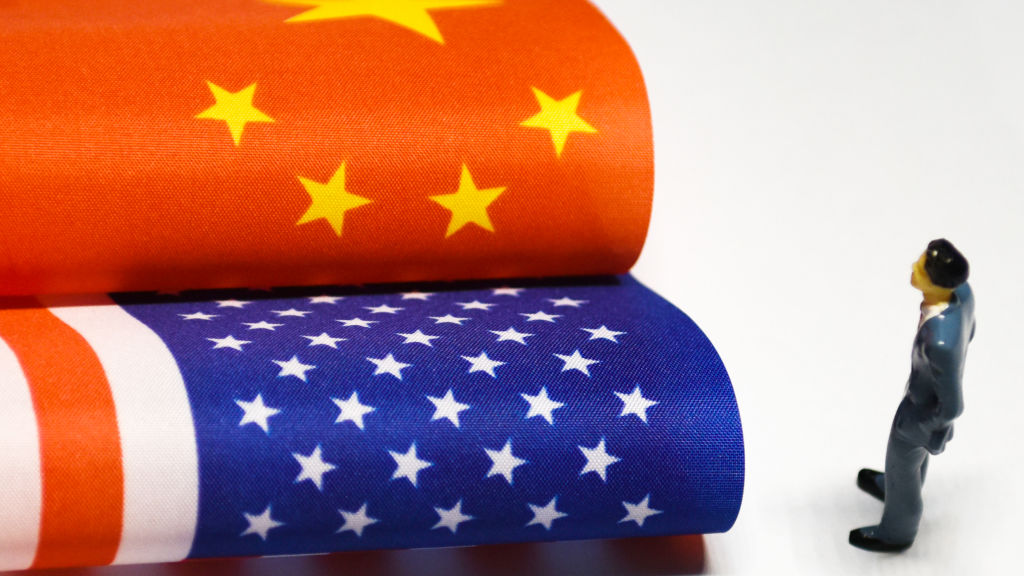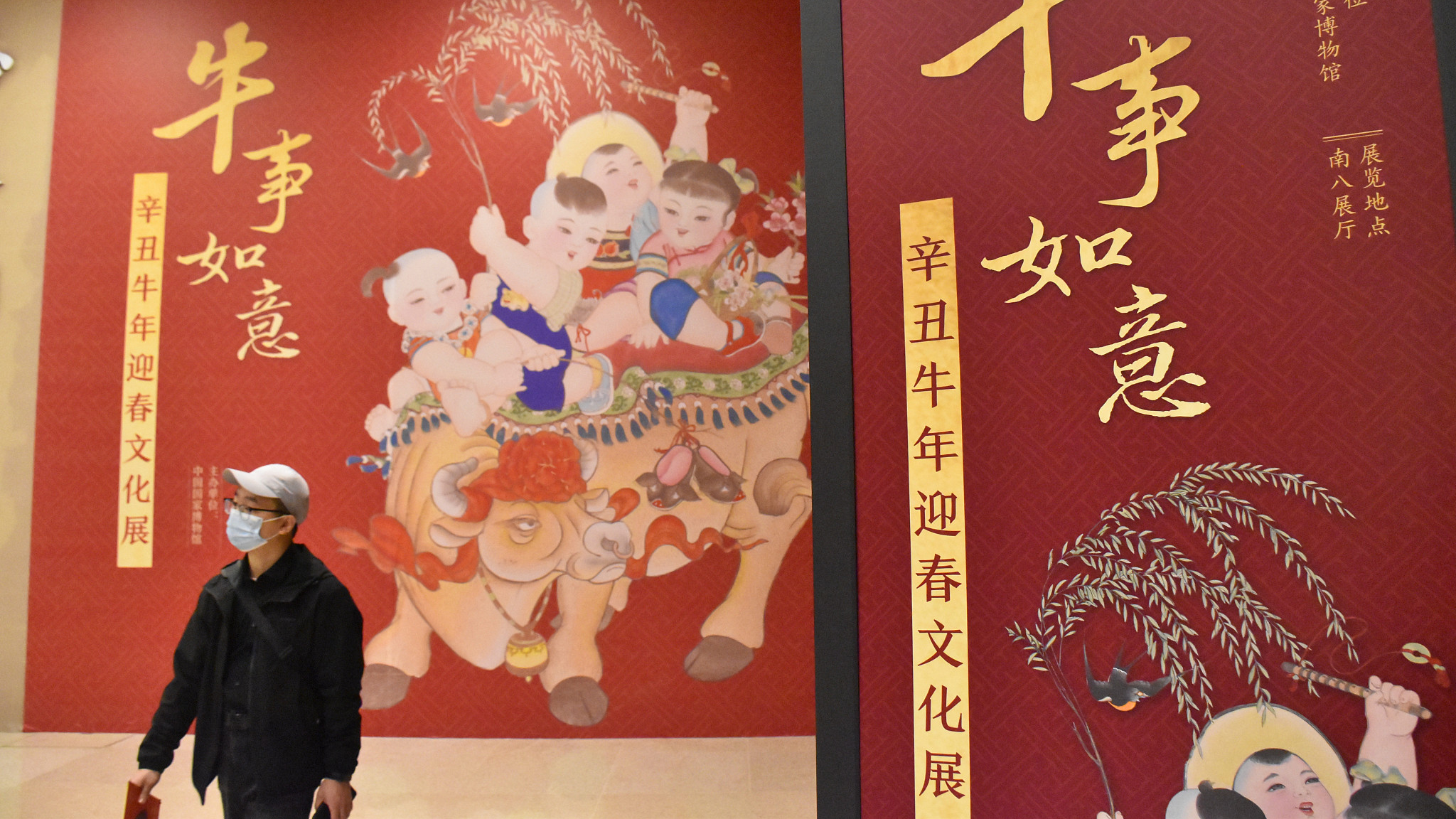
Editor's note: Wang Peng is a distinguished research fellow at the Center for Hong Kong, Macao, Taiwan, and World Affairs of the Communication University of China. The article reflects the author's opinions, and not necessarily the views of CGTN.
Winter gives way to spring, and everything comes back to life.
China-U.S. relations, which have experienced ups and downs in the past four years, may also overcome difficulties and turn a new page.
The two leaders held their first telephone conversation on the eve of the Lunar New Year. The two sides agreed that China and the U.S. need to enhance mutual understanding and avoid misunderstanding and miscalculation. They claimed that both China and the U.S. should treat each other with sincerity and refrain from conflict and confrontation; they should open channels of communication and promote exchanges and cooperation.
This crucial and historic conversation charted the course for China-U.S. relations at a crossroads. It is under the guidance of this right direction that State Councilor and Foreign Minister Wang Yi welcomed visionary people from home and abroad at the Opening of Lanting Forum host by the Chinese Foreign Ministry on the occasion of the New Year of the Ox.
Now the world is facing "profound changes unseen in a century." Global crises such as anti-globalization, climate warming and the COVID-19 pandemic have posed real threats to the survival of people in all countries.
Controlling prejudice is a prerequisite for rebuilding strategic mutual trust between China and the United States. It means, first of all, that each country can see the other without prejudice. In this regard, the U.S. side in particular has much room for improvement. As Wang Yi pointed out: "In the past few years, China-U.S. relations deviated from the normal track, and ran into the biggest difficulties since the establishment of diplomatic ties.
The root cause was that the previous U.S. administration, out of its own political needs, seriously distorted China's future path and policy, and on that basis, took various measures to suppress and contain China, which inflicted immeasurable damage to bilateral relations. Therefore, if the United States is as willing as China to improve bilateral relations in good faith today, it should cast off the colored glasses of the old era and view China-U.S. relations from a new and realistic perspective.
To this end, Wang spent almost half of his speech in Lanting elaborating on the misunderstanding and prejudice that the United States and other Western countries tend to have about China in terms of its democratic system, human rights, peaceful development, mode of win-win cooperation and diplomacy of multilateralism. All his profound words and pertinent suggestions are necessary to be closely listened and well-interpreted.

The ox-themed exhibition at the National Museum of China in Beijing, February 12, 2021. /CFP
The ox-themed exhibition at the National Museum of China in Beijing, February 12, 2021. /CFP
Abiding by the red line is a strong guarantee for rebuilding China-U.S. strategic mutual trust. Confucius said: "Do not do to others what you do not want others to do to you." These words make sense and should guide international conducts as a golden rule. The Chinese people do not want to interfere in the internal affairs of the United States.
That is why China has never interfered in the domestic affairs of the United States in the more than 40 years since the establishment of their diplomatic relations; and China has no intention to challenge or replace the United States. By the same token, the United States and the American people, who also do not want to have outside forces weigh in on their internal affairs, should not apply double standards to China and the Chinese people on this crucial issue.
As Cui Tiankai, China's ambassador to the U.S., stressed in his speech, China has no room to make concessions on issues concerning its sovereignty and territorial integrity, including Taiwan, Hong Kong, Xinjiang and Tibet. China must hold the red line. Therefore, if the U.S. really wants to restart bilateral relations, it must also abide by this red line. Only in this way can the improvement and growth of China-U.S. relations be sustained.
Facing the reality is a proper attitude to rebuild strategic mutual trust between China and the U.S. There is no one but loves his/her motherland; there is no one but wants his country to be prosperous, great and first in the world forever. However, the rise and fall of national power is determined by multiple factors and has its objective laws, which cannot be easily transferred with the subjective will of individuals.
Therefore, both national policy makers and ordinary people should have a realistic attitude when facing the development trajectory of their own country and other countries, involving the rise and fall of power and other issues, rather then "wishful thinking," which means employing subjective desire instead of objective facts, emotion instead of logic, and slogan instead of action.
In the election, whether the candidate can effectively arouse people's "wishful thinking" and resonance by offering empty promises may be the key to winning the vote. However, once in power, they should quickly abandon this behavior and implement domestic and foreign policies in a pragmatic and feasible way, so as to promote social development and effectively safeguard national interests.
Looking forward to the future is the guiding direction for rebuilding China-U.S. strategic mutual trust. The vision of China and the United States gathered here to review the past and draw lessons from the past in order to plan for the future.
To this end, Wang Yi earnestly prescribed four remedies: First, "respect each other and not to interfere in each other's internal affairs." Second, "step up dialogue and properly manage the differences." Third, "move in the same direction to restart mutually beneficial cooperation." Fourth, "clear the path for the resumption of bilateral exchanges in all areas." This four-pronged approach not only reflects China's strategic thinking on China-U.S. relations, but also is practical and practical at the operational level.
On the occasion of the Year of the Ox, may the giant ship of China-U.S. relations get back on the right track and make steady and lasting progress.
(If you want to contribute and have specific expertise, please contact us at opinions@cgtn. com.)

